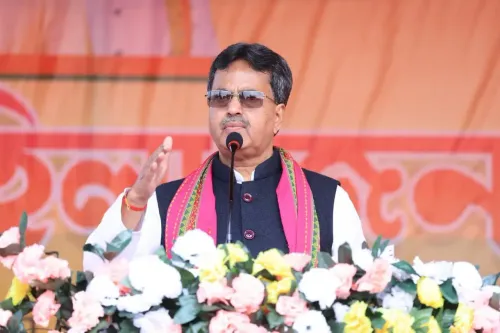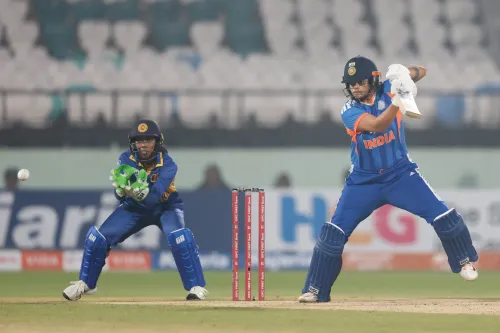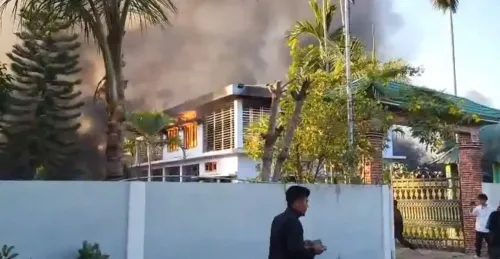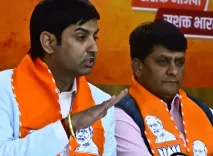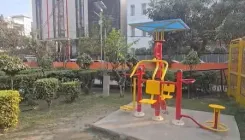India Aims for Enhanced Cooperation with US in Trump 2.0 Administration: S. Jaishankar
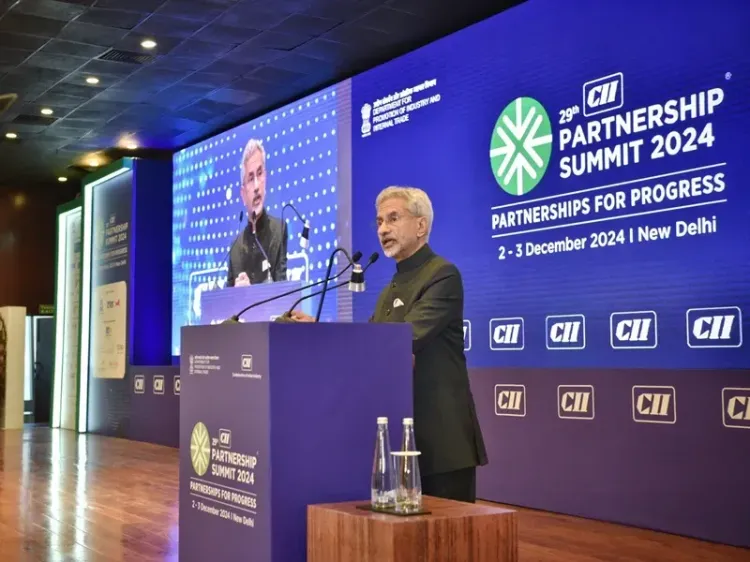
New Delhi, Dec 2 (NationPress) The External Affairs Minister, S. Jaishankar, indicated on Monday that India is poised to investigate numerous collaborative opportunities with the United States once the Donald Trump-led government resumes its term.
At the CII Partnership Summit 2024, themed ‘India and the World,’ S. Jaishankar remarked: "The commencement of the second Trump Administration is undoubtedly a significant factor in the business landscape. The only reliable prediction is a certain level of unpredictability. Various nations have garnered their experiences from the first Administration and are expected to leverage that for their approach to the second. In terms of India, I can confidently assert that the strategic alignments with the United States have only intensified over time, fostering a broader environment for exploring additional collaborative avenues.
"Of course, between two major economies, there will be an inherent exchange. In examining economic or technological sectors, the demand for trusted and dependable partnerships has notably escalated in recent years. Much of what lies ahead will hinge on crafting terms of engagement that are viewed as mutually advantageous. In this context, the more India contributes, the stronger our appeal will be.
He further noted that economic re-balancing has started to take on strategic implications, particularly with the escalating US-China tensions, which have gained relevance that was unimaginable just a few years ago.
The conflict in Ukraine has generated its own consequences, visible in food, fuel, and fertilizer insecurities. The Global South is grappling with inflation, debt, currency shortages, and trade instability. In essence, the global landscape appears challenging. Tough circumstances necessitate the cultivation of more allies and partners, S. Jaishankar remarked.
He also mentioned that in any economic dialogue, Free Trade Agreements (FTAs) inevitably emerge as a potential partnership route.
"There is considerable truth to this, but also a need for caution. A country with low per capita income and small producers will naturally be hesitant about excessive external exposure. This hesitancy amplifies when faced with unfair, subsidized, and large-scale competition. The nature of global commerce and supply chains is such that traditional precautions may not suffice. Nevertheless, it would be imprudent to miss out on opportunities and restrict access. Thus, the guiding principle should be to proceed with caution," the Minister noted.
S. Jaishankar stated that India has made strides in recent years with EFTA nations, the UAE, Australia, and Mauritius, with several significant agreements currently under discussion. In a world in flux, such efforts will inevitably take up more cognitive space, he added.
Partnerships are also increasingly aware of demographic challenges. The gap between the demand for skills and their availability is likely to widen sharply within this decade. In India, we have recognized that mobility is steadily becoming a critical area of cooperation on the global agenda.
Societies that were once resistant are now reconsidering their stance, the Minister added.
However, he emphasized that there is also a downside that must be acknowledged.
"We are witnessing a trend in the rise of Global Capability Centres in our country. They possess efficiencies and sensitivities that cater to contemporary needs. 'In sourcing' from India may well become the new mantra," he concluded.


